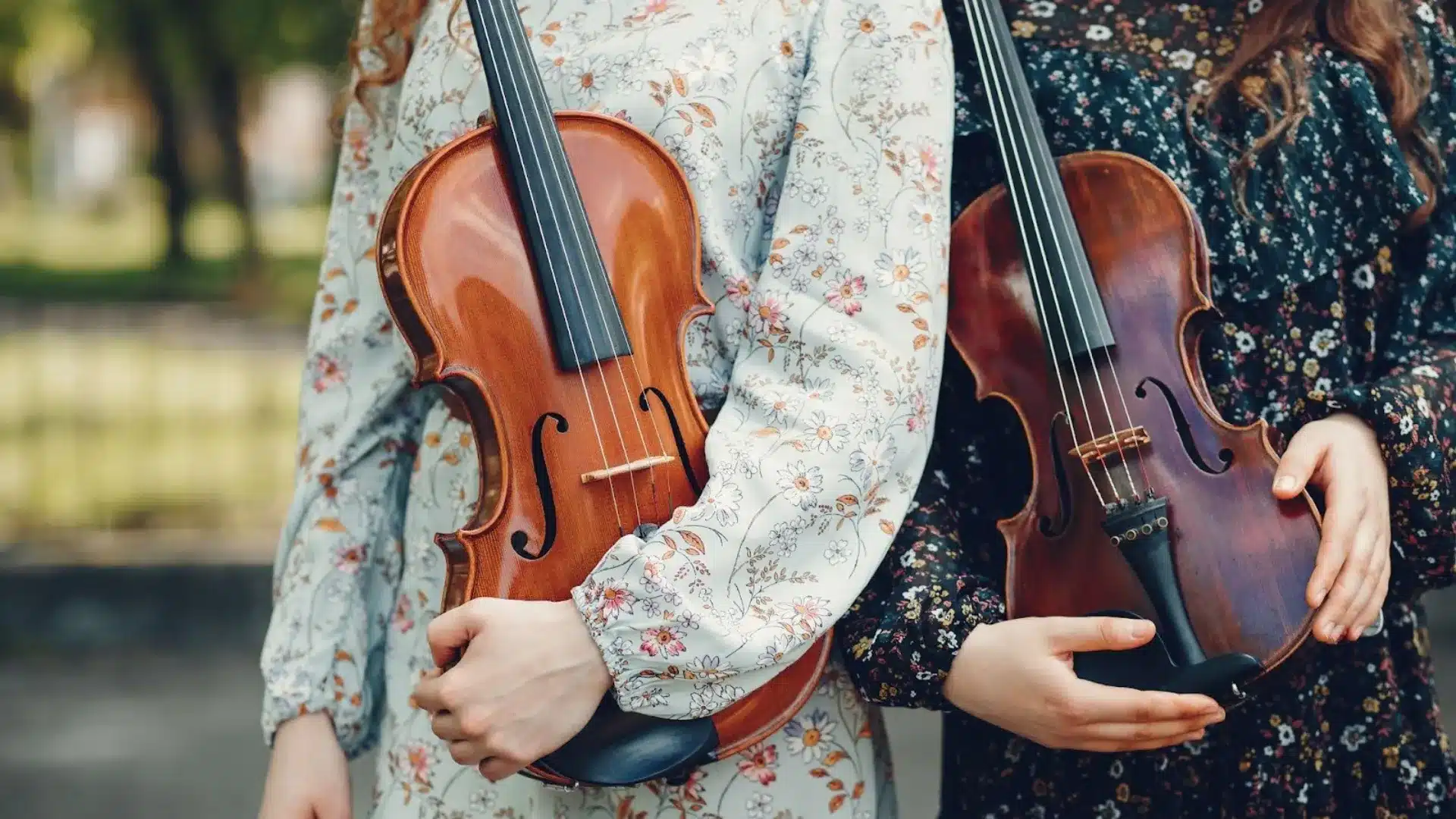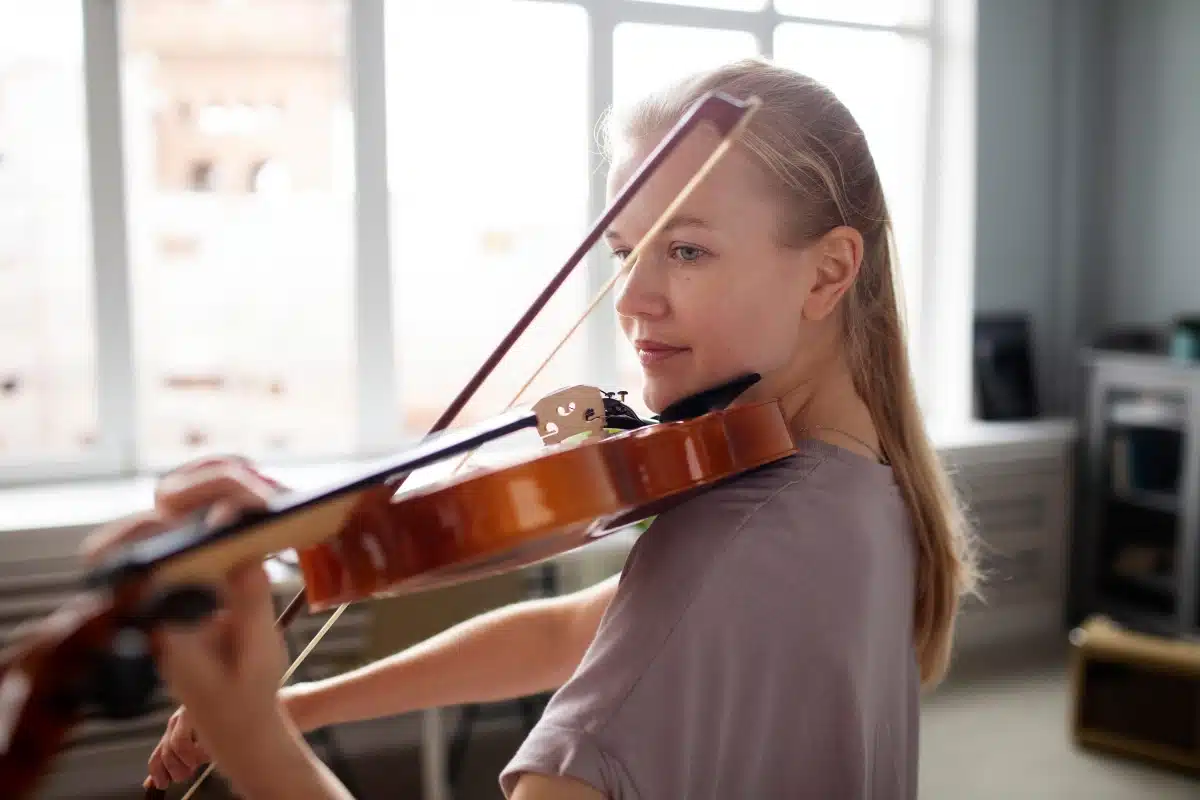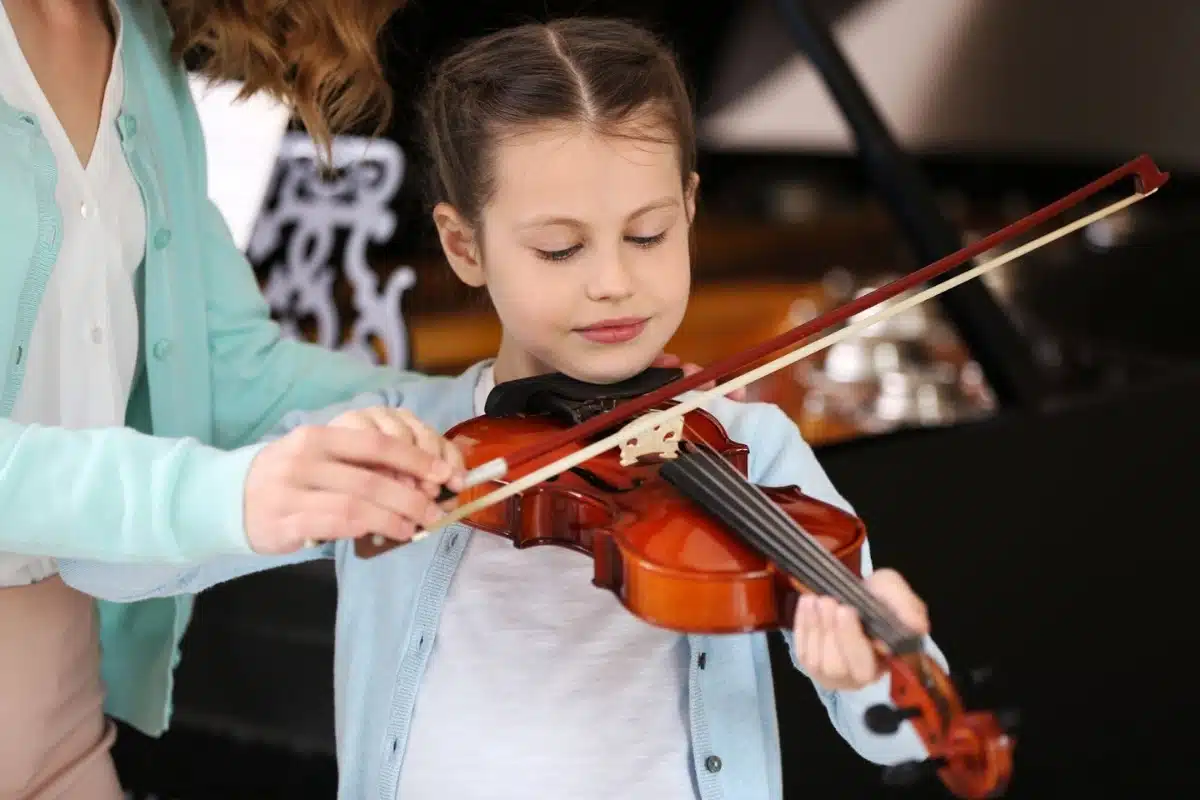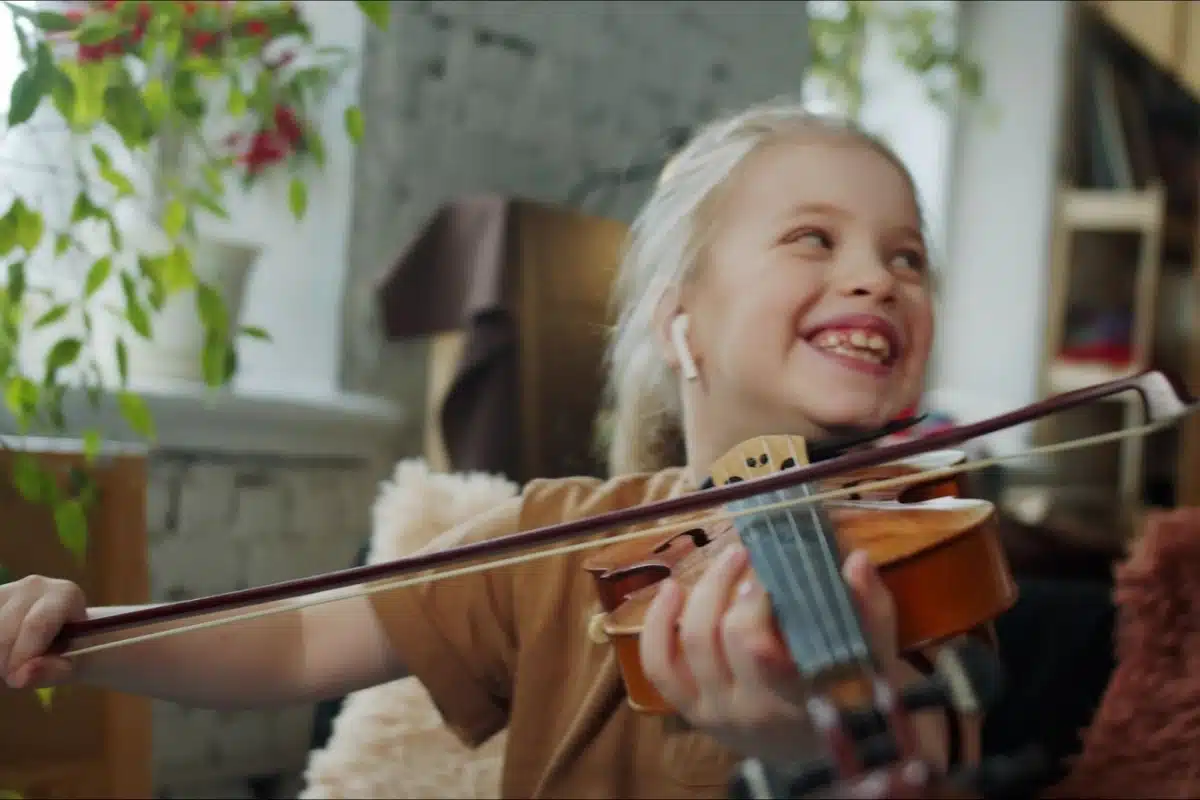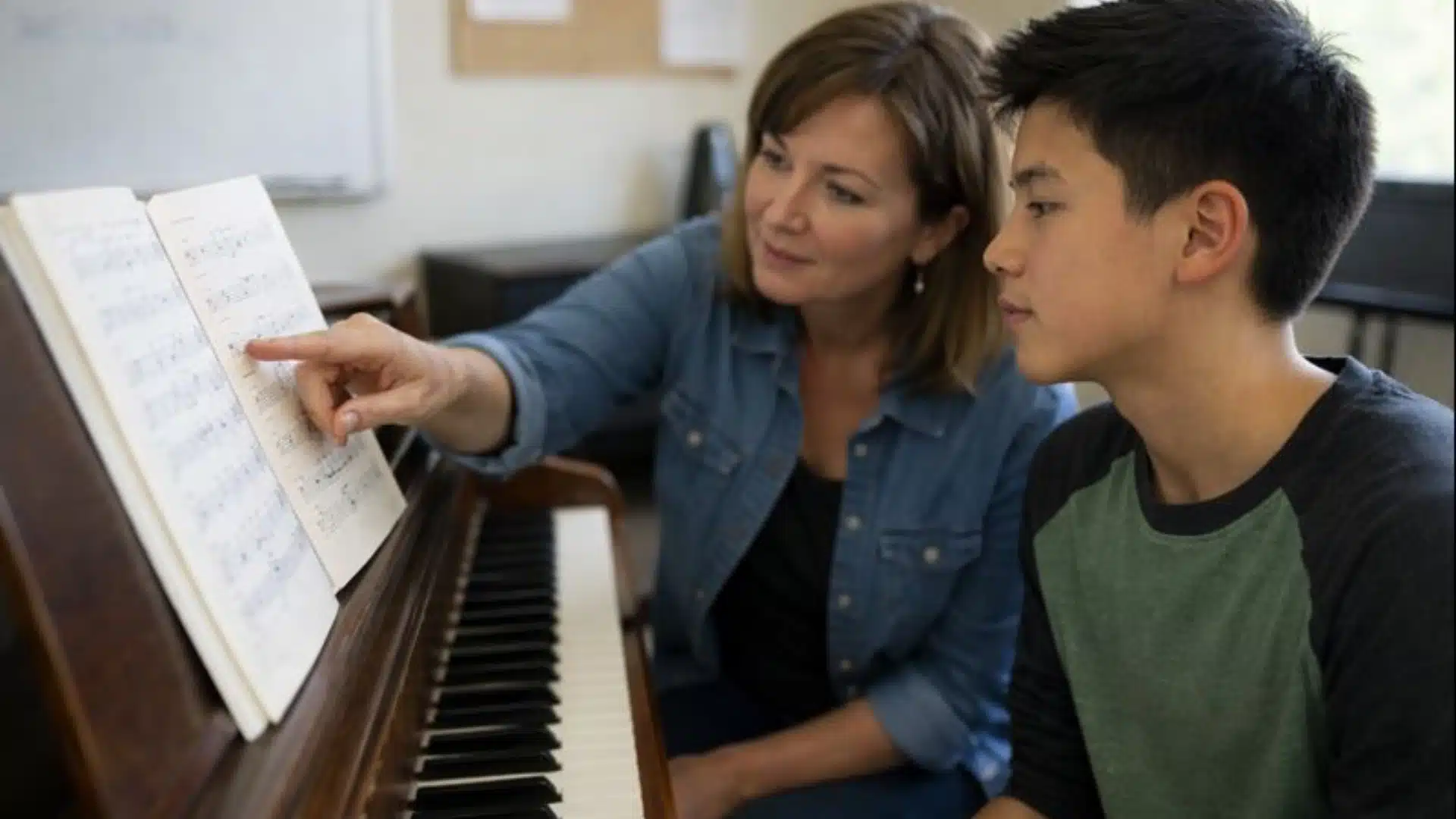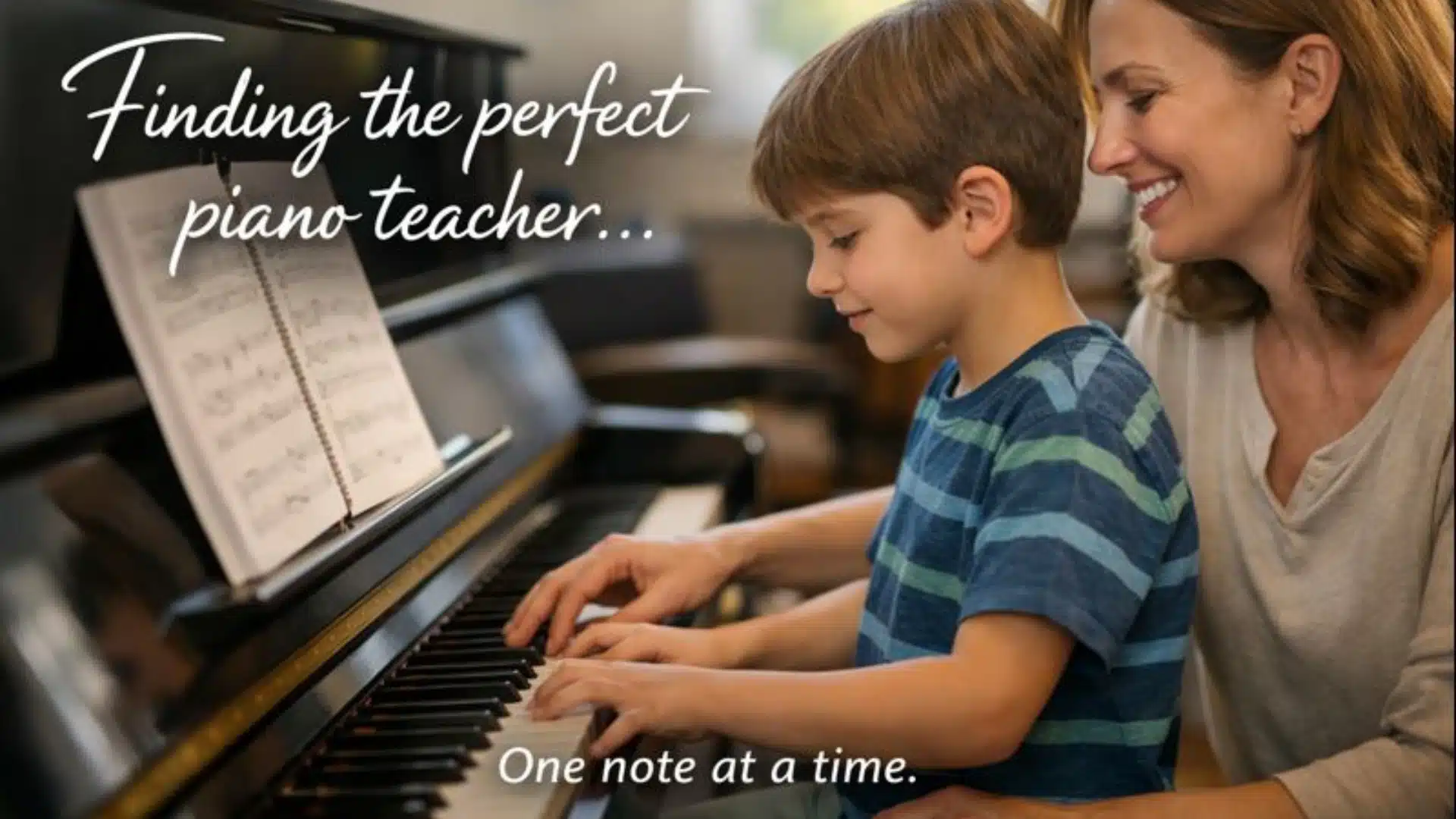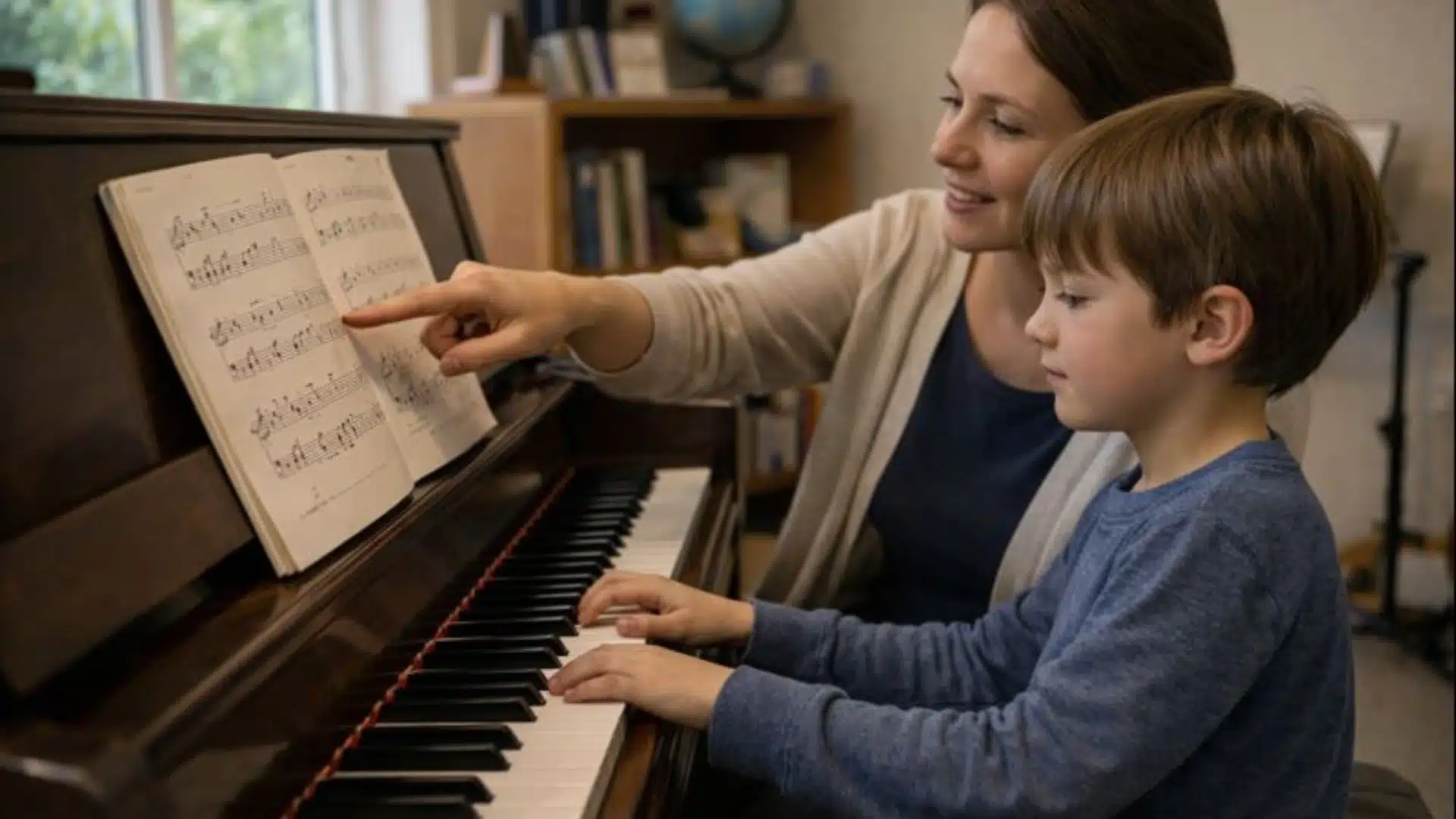Learning the violin is one of the most beautiful adventures you can embark on. It’s not just about holding a bow or reading sheet music; it’s about discovering a new language, one made entirely of sound and emotion. Whether you’ve always dreamed of playing classical melodies, folk tunes, or modern songs, taking your beginner violin lesson is your first step toward expressing yourself through one of the most soulful instruments ever created.
Let’s explore everything you need to know, from choosing your first violin to mastering your first notes and finding the right Music School in Vancouver to guide your journey.
Why Choose the Violin?
There’s something almost magical about the violin. Its tone can be warm or piercing, joyful or sorrowful; it all depends on the hands that play it. The violin has been at the heart of orchestras, folk traditions, and even modern pop music. But honestly, the real reason people fall in love with it is simple: it feels alive.
When you press your fingers against the strings and hear your first clear note, you’ll realize this instrument has a voice of its own. It demands patience, but it rewards passion.
The Emotional Power of a Beginner Violin Lesson
A beginner violin lesson isn’t just about technique; it’s about emotion. Every student remembers the thrill (and sometimes the frustration) of producing that first sound. The bow squeaks, your fingers slip, and you might even wonder if you’re doing it wrong. That’s all part of the journey.
A good instructor will help you understand that these little “mistakes” are milestones. Each lesson builds confidence, muscle memory, and an ear for tone. Before long, you’ll realize that what once felt impossible now comes naturally.
What You’ll Learn in Your First Violin Lessons
Every beginner violin lesson covers the same core foundations, but the approach depends on your teacher’s method. Here’s what you’ll usually start with:
1. Posture and Holding the Violin
Getting comfortable with the instrument is key. You’ll learn how to hold the violin with proper balance on your shoulder, supported by your chinrest and how to position your left hand for finger placement.
2. Using the Bow
The bow might look simple, but it’s where the magic happens. You’ll practice smooth, even strokes and learn how pressure and speed affect the sound.
3. Tuning and Open Strings
Learning to tune your violin is one of the first significant steps toward independence. You’ll also play “open string” exercises to understand how each string sounds and vibrates.
4. Basic Finger Positions
Once you’re comfortable, you’ll start pressing fingers on the fingerboard to play your first notes. Expect simple tunes like “Twinkle, Twinkle, Little Star” or “Mary Had a Little Lamb.”
5. Reading Music and Rhythm
Sheet music might seem intimidating, but it’s just a map. You’ll learn note names, rests, time signatures, and how to count beats one step at a time.
How Long Does It Take to Learn the Violin?
Let’s be authentic, learning the violin is not an overnight thing. It’s like learning to ride a bike, but the bike has four strings and a bow.
Most beginners start playing recognizable songs after about three to six months of consistent practice. To play confidently in front of others, expect a year or more of lessons and practice.
But don’t let that timeline scare you! Every minute you spend with your violin brings improvement. A 20-minute daily routine can make a huge difference compared to sporadic practice once a week.
Finding the Right Music School in Vancouver
Choosing where to take your beginner violin lessons can make all the difference. A good instructor doesn’t just teach notes; they nurture your confidence.
If you live in British Columbia, consider enrolling in a Music School in Vancouver like Music Star Learning Center, where friendly, professional teachers help students of all ages discover the joy of music. Lessons are flexible, and you can even combine your violin studies with a piano lesson, flute lesson, or guitar lesson if you’re feeling adventurous.
What to Look for in a Music School:
- Experienced teachers who play and perform regularly
- Individual or small group lessons for personalized attention
- Flexible scheduling that fits your lifestyle
- Comfortable environment that encourages creativity
- Performance opportunities like recitals or ensemble sessions
Taking your first step in a trusted Music School in Canada ensures you’re learning proper techniques from day one, something self-taught learners often struggle with later.
Choosing Your First Violin
Your violin doesn’t have to be expensive to sound good. In fact, many students start with rental instruments before buying their own.
Here’s what to consider:
- Size: Violins come in various sizes (¼, ½, ¾, and full). Your teacher can measure your arm length to find the right fit.
- Material: Beginner violins are often made from spruce and maple, producing a warm sound without being too heavy.
- Accessories: Don’t forget essentials like a bow, rosin, tuner, and shoulder rest.
- Setup: Make sure your violin is professionally adjusted for playability.
Pro tip: Renting from a Music School in Vancouver can be a great start. You’ll have access to well-maintained instruments and professional advice.
Practice Tips for Violin Beginners
Every musician will tell you: consistency beats intensity. Practising five times a week for 20 minutes each day is better than one long session on Sunday.
Here are a few tips to keep you motivated:
1. Set Realistic Goals
Instead of “I’ll play perfectly,” try “I’ll improve my tone on open strings today.”
2. Use a Mirror
Watch your bow movement and posture. You’ll spot habits that are easier to fix early on.
3. Record Yourself
It’s humbling but helpful. Listening back shows your progress better than you realize.
4. Make Practice Fun
Add background tracks, play along with friends, or switch between slow and upbeat songs to keep it fresh.
5. Reward Yourself
Finished a week of practice? Celebrate it. Motivation builds when you recognize small wins.
Common Struggles (and How to Overcome Them)
Even the best violinists once squeaked their way through practice. So don’t worry if things sound rough at first.
- Scratchy sound? Check your bow pressure; too much or too little makes it squeak.
- Flat or sharp notes? Finger placement is key. Use tape markers in the beginning.
- Tired arms? Take breaks, stretch, and check your posture.
- Boredom? Mix in songs you love. Even movie themes can make practice more exciting.
Learning violin is as much about patience as it is about skill. Remember, every great musician once started right where you are.
Learning Online vs In-Person
Online lessons are great if you live far from a Music School in Canada, but there’s no replacement for real-time feedback. Many schools offer hybrid programs now, where you can start online and continue in person.
At Music Star Learning Center, students in Vancouver and nearby areas can take private or online beginner violin lessons depending on their schedule. The teachers focus on making each session engaging and interactive, ensuring you enjoy the process as much as the progress.
The Benefits of Learning the Violin
Beyond playing beautiful melodies, the violin builds skills that shape your entire mindset.
- Patience and focus: Learning precise finger movements trains your attention.
- Confidence: Performing even a simple song boosts self-esteem.
- Creativity: You’ll begin to interpret songs in your own style.
- Cognitive development: Studies show musicians often perform better in math and problem-solving.
And perhaps most importantly, it’s relaxing. Playing after a long day can be the therapy you didn’t know you needed.
How the Violin Connects to Other Instruments
Learning the violin opens the door to understanding music theory in general. You’ll notice patterns that make it easier to transition to other instruments later.
For example, once you’ve learned basic notation, it’s much easier to start a piano lesson or flute lesson. The sense of rhythm, pitch, and ear training you develop carries over beautifully. Many students at our music school in Vancouver enjoy exploring multiple instruments to deepen their musicality and creativity.
A Day in the Life of a Beginner Violin Student
Imagine this: You walk into your lesson, violin case in hand. Your teacher smiles, adjusts your bow, and starts with a warm-up. You play your scales, a little shaky but better than last week. Then you try your new song “Ode to Joy,” and this time, it actually sounds like music.
That little smile from your instructor? That’s progress.
That goosebump you feel when the note rings true? That’s passion.
Learning violin isn’t just about mastering an instrument; it’s about discovering who you are when you create something beautiful.
How to Stay Motivated on Your Violin Journey
Everyone hits plateaus. The trick is not to quit when you feel stuck.
- Join group lessons or recitals, meeting other learners keeps you inspired.
- Listen to violin music; daily exposure builds intuition.
- Track your growth, old recordings remind you how far you’ve come.
- Mix genres, try jazz, folk, or film music for variety.
Motivation isn’t constant, but momentum is. Keep showing up, and the results will follow.
Success Story: From Beginner to Performer
At Music Star Learning Center, many students start with no musical background at all. One of them, a 12-year-old named Emily, could barely hold the bow straight in her first class. Six months later, she performed her first solo at a local event in Vancouver.
Her secret? Consistency and a teacher who believed in her. That’s the beauty of a supportive Music School in Canada: you’re never learning alone.
Conclusion: Your First Note Is Just the Beginning
Every great violinist began with one shaky, out-of-tune note. What matters isn’t how you start, but that you start. Your first beginner violin lesson marks the beginning of a rewarding journey filled with discovery, emotion, and growth.
Whether you’re in Vancouver, Burnaby, or anywhere across Canada, your story begins when you pick up the bow and play your first sound. Please don’t wait for the perfect moment; create it.
Ready to start your violin journey?
Visit Music Star Learning Center, your trusted music school in Vancouver, and book your first violin lesson today. You can also explore other courses like piano lessons, flute lessons, or guitar lessons to expand your musical skills. Your masterpiece starts here!

